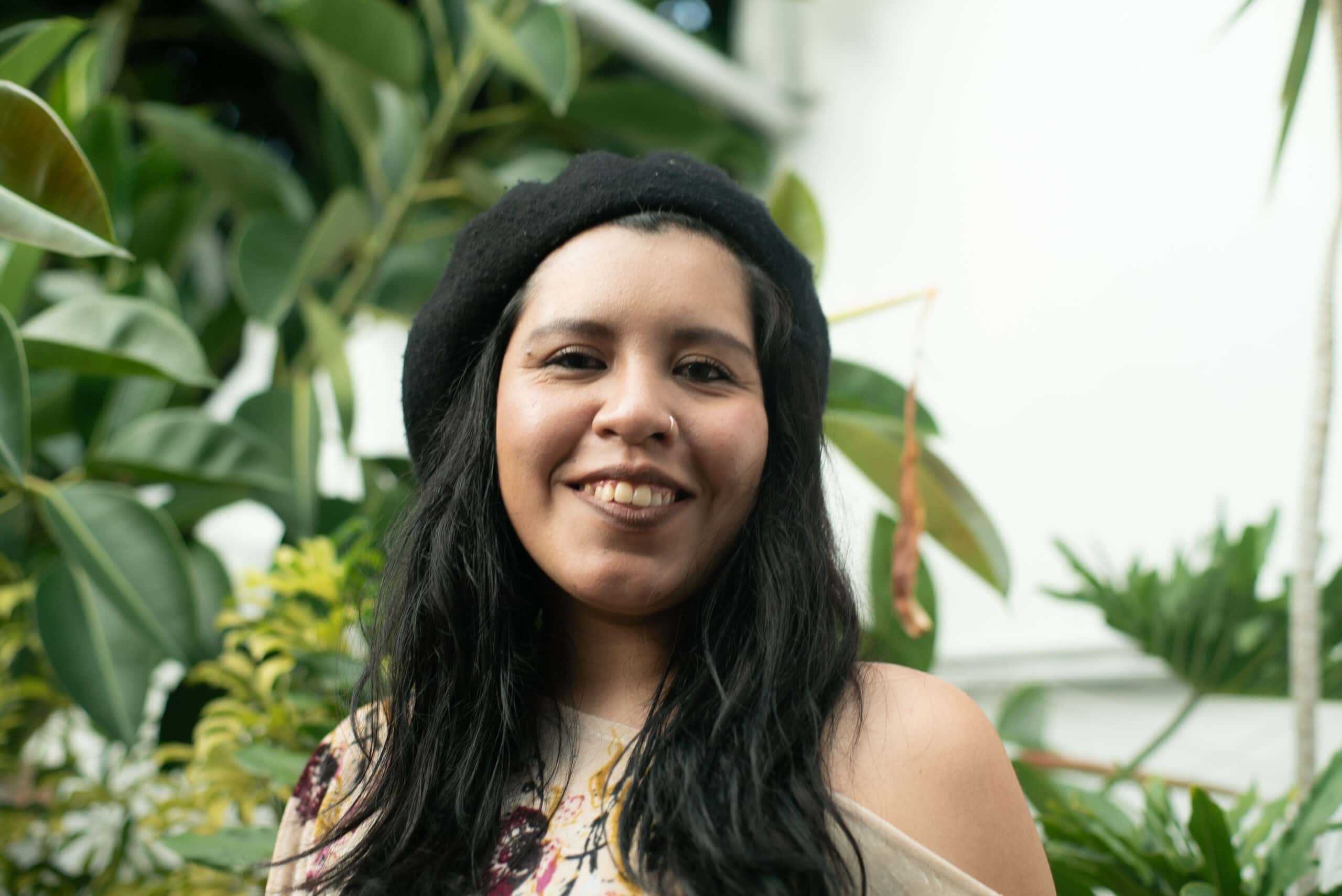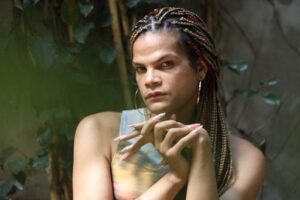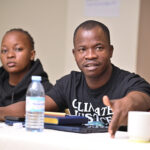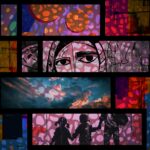
As the late afternoon sun beats down on a rooftop in Mexico City’s La Condesa neighborhood, Mikaelah is voguing.
Every pose she strikes feels like a defiant challenge—to Mexico’s entrenched patriarchy, to the enduring legacy of colonialism, and to the global capitalist system that continues to treat people like her as anything less than human.
Mikaelah is the co-coordinator of Fund grantee AFROntera Cimarrona, a collective of young, Afro-Indigenous, migrant, and trans or non-binary activists in Mexico. They define themselves as a group that resists from the margins— or, as they say, “at the edges of the center of the world.”
For two years, they have challenged anti-rights narratives through writing, social media, and the creation of community spaces. They speak out unequivocally about abolition of the police, the end of the carceral state, and the demilitarization of Mexico.
Often, that means making people uncomfortable. AFROntera is just as quick to challenge racism, sexism, patriarchy, and transphobia in the human rights movement. They see these difficult conversations as essential to realizing an alternate vision for Mexican society.

“AFROntera responds to a system of oppression,” says Mikaelah. “We propose two things basically: One is to bother, to disturb, to be the pebble in the shoe of the capitalist colonial world system. And two, we are fighting for a decolonization of the subject.”
Under the administration of President Andrés Manuel López Obrador (popularly known as AMLO), the state has doubled down on the militarization of Mexico. Despite running for office on a slogan of “hugs, not bullets,” AMLO has emboldened the military and tasked it with numerous responsibilities outside its traditional remit, including control of the country’s National Guard, the provision of public security, infrastructure projects, and more.
This securitization of society has, unsurprisingly, had the opposite effect. Instead of curbing violence, human rights violations are on the rise and people from marginalized races, classes, or gender identities are increasingly targeted. AMLO has also isolated and endangered Mexico’s vibrant human rights movement, attacking human rights defenders from behind his podium and even spying on Mexican civil society. As the state embraces populist rhetoric and spreads toxic security narratives, it is undermining the essential work of frontline activists—and reinforcing the racism, sexism, transphobia, and colonialism that harm people like Mikaelah.
AFROntera—which roots itself in the radical philosophy of thinkers like Angela Davis—sees this militarization of Mexico as a symptom of the injustices inherent in the capitalist system. They believe that the solution, too, must be complete systematic transformation.
“We generally understand that activism is fragmented,” says Mikaelah, calling out activists who focus narrowly on one issue or another. “We articulate collectively because we have pain.”
To hear Mikaelah speak about racism and discrimination in Mexico is to feel her pain. As a black travesti and a migrant, she has endured countless hardships throughout her life.
“I got rejected from several jobs when they realized that I was HIV positive,” says Mikaelah. “I was always denying my own identity and my family. When I realized that I was always ashamed of myself, I realized it was because I had internalized white values.”
But her difficult experiences have connected her with others who share her pain—and her fierce response has inspired people to rally around AFROntera’s vision for a better future.

One of Mikaela’s allies is Brenda, a writer and poet who identifies as prieta, or a woman with darker skin. She was inspired to join AFROntera to fight for the collective freedom of people like Kenia Hernández, an Indigenous human rights defender who was sentenced to 10 years in jail on fabricated charges. The media, she says, paints activists like Kenia as criminals.
“But in reality, she is a defender of human rights and territory,” says Brenda. “Any of us could be in jail simply for racial profiling, right? We want their fight to be ours.”
Now, AFROntera is working to create space for voices that amplify these critical issues about rights and representation. They recently concluded an event called Palenque Cimarron, which they describe as an anti-colonial space and “non-school” for the collective exchange of Afro-border and Black knowledge. The word palenque, which means “walled city,” refers to free towns built by escaped slaves in the colonial era. At Palenque Cimarron, AFROntera brought together what they call “non-hegemonic subjects”—including HIV-positive people, prison abolitionists, racialized or neurodivergent people, and sexual minorities—to share knowledge and learn from each other through “popular, decolonial education.”
“We have been denied the world, we have been denied writing, we have been denied the space. Our lives have always been conceived as non-important lives, non-central lives,” says Mikaelah, evoking the philosopher Frantz Fanon’s seminal book The Wretched of the Earth. “So, we got together as a collective. That generates for us many strengths, many joys, many feelings, many assets, and we collectively learn from each other.
“When we are more, we can think more, we can do more.”
Sign up to our newsletter
Add some impact to your inbox.


